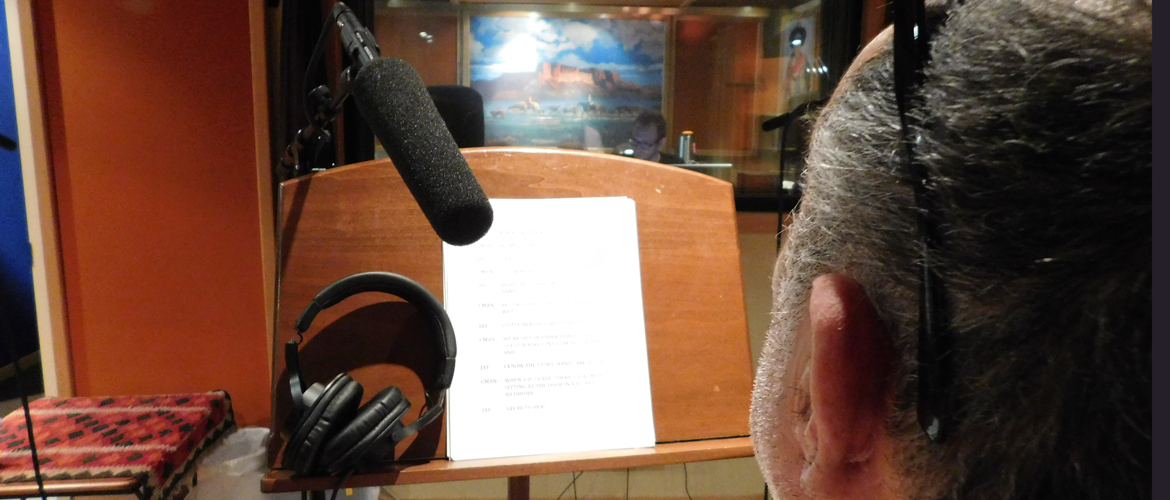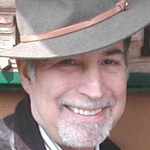 “I was just in the right place at the right time,” Dick Orkin told me in his matter-of-fact way. It was an unplanned utterance, one of many, that came up while we were celebrating the 50th anniversary of Chickenman, the daily radio serial Orkin created.
“I was just in the right place at the right time,” Dick Orkin told me in his matter-of-fact way. It was an unplanned utterance, one of many, that came up while we were celebrating the 50th anniversary of Chickenman, the daily radio serial Orkin created.
Never heard of Chickenman?
Either you’re younger than you look or your transistor radio spent the last half of the 60s without batteries. Chickenman, a parody of the 1966 Batman television show, is still the longest-running local radio series in history. At the height of its popularity, the program aired on 1500 radio stations and Armed Forces Radio Network.
The story of Chickenman, and how Orkin went on to change the face (and ears) of radio advertising, lays waste to that cloying self-help dictum, if you’re failing to plan you’re planning to fail. If Dick Orkin’s right-time-at-the-right-place life is what failure looks like, sign me up.
Orkin had never written advertising without a partner, nor had he planned for his partner’s replacement. For the first time, he had to deal with the downside of living in the present.
“I loved being a disc jockey,” Orkin said about his days at a small station in Pennsylvania. “One morning, ahead of an important city council meeting, the news director quit. The general manager told me to grab a tape recorder, go to the meeting and come back with a story.” Orkin protested. It wasn’t that news ran afoul of his career plans. For this Yale Drama School trained actor, improvising snappy patter on a radio show was what he wanted to do. Nevertheless, Orkin went to City Hall.
Before long, he was producing radio documentaries. “This is fun,” he thought, demonstrating one consequence of his Yale education: a gift for living in the moment.
Several of his documentaries crossed the desk of the news director at KYW in Cleveland, who brought Orkin into the news department.
“There was a two-man morning show on the station. Their jokes weren’t very good. I wound up writing material for them and doing some on-air sketches. It wasn’t planned. I was just sort of there.” Being there stuck in the mind of Ken Draper, KYW’s program director. When Draper moved to Chicago’s WCFL, he invited Orkin to come along.
The invitation fit right into the life of a master non-planner. “I was happy at KYW, but I liked Ken. So I went.”
At WCFL, Orkin created an anti-Batman promotion, which included superhero identities for all the disc jockeys. “Chickenman was the only one that survived,” he said.
Orkin’s unplanned departure from WCFL came about when the station canceled the show. With no real plans, only a friend’s suggestion, Orkin opened an advertising agency. It was there he teamed up with Bert Berdis.
“We had a sofa in the reception area and one day Bert showed up. He sat on that sofa every day, waiting for us to give him some work. Finally, I hired him. It was the only way to get him off the sofa, which we needed for visiting clients.”
Dick and Bert, as they were called, were responsible for some of the most honored, effective and flat-out funny radio advertising of the 20th century.
While Orkin never planned on partnering up with Bert, he was less prepared to split up with him. “We moved the business to Los Angeles because Bert wanted to dabble in television. Once we got there, dabbling wasn’t enough. Bert left because he desperately wanted a television career,” Orkin said. “I was happy where I was.”
Orkin had never written advertising without a partner, nor had he planned for Bert’s replacement. For the first time, he had to deal with the downside of living in the present.
He turned to his producer/director Christine Coyle (literally, she was sitting next to him at a conference table) and asked her to help with the writing. The results were another decade of advertising clients lined up outside the door of the his Famous Radio Ranch studios.
In 2002, Orkin was inducted into the National Association of Broadcasters Hall of Fame. Twelve years later he was also inducted into the National Radio Hall of Fame.
By contrast, my carefully-planned writing career has gotten me more anonymity than I deserve. While I put together five-year plans every six months, only once did the word plan slip through Orkin’s lips.
“I went to Franklin & Marshall College with the idea of becoming a doctor,” Orkin said. “It was the only thing in my life that I ever planned.”
Fortunately, he failed.
Dick Orkin was born in Williamsport, Pennsylvania, in 1933. He didn’t know it, but he began his radio career when, in Sunday school, his retelling of the story of Purim included Buck Rogers and a gestunkina ray gun. A graduate of Franklin & Marshall College and the Yale Drama School, Orkin’s first job at a major radio station was assistant news director at KYW in Cleveland, In 1966 Orkin moved to WCFL in Chicago where he created Chickenman. Conceived as part of a promotion to exploit the wildly popular Batman television show, Chickenman followed the adventures of mild-mannered shoe salesman Benton Harbor who, in his spare time, was the famous crime-fighting “white-winged warrior.” Chickenman, the longest-running radio serial of all time, was followed by another popular serial, The Secret Adventures of the Tooth Fairy. After leaving WCFL, Orkin launched The Creative Monopoly, a radio advertising company. There, he teamed up with Bert Berdis and for nearly a decade the pair created the funniest and most-honored commercials of the 20th century, including a landmark campaign for Time magazine. In 1978, Orkin moved to Los Angeles, where he continued creating commercials for another 20 years.
Start your Sunday with a laugh. Read the Sunday Funnies, fresh humor from The Out Of My Mind Blog. Subscribe now and you'll never miss a post.
Mind Doodle…
According to scientists, chickens experience REM sleep, which is associated with dreaming. What is not known is whether any of these dreams involve being a crime fighter.
